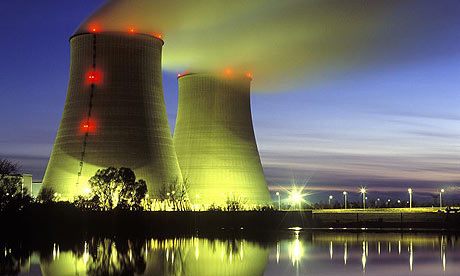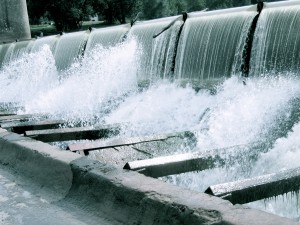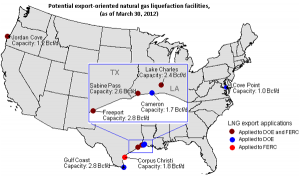37 item(s) were returned.
University Distinguished Professor
Michigan State University, Dept. of Chemical Engineering
High energy use (power consumption) increases wealth, health and education levels. Since the beginning of the Industrial Revolution, most energy has come from fossil fuels: coal, oil and natural gas. Whatever the eventual lifetimes of these fossil energy resources, they are not renewable. Sooner or later, fossil energy will not be available to underpin our prosperity. Thus non-renewable energy is not a long-term option. We must have renewable energy if we are to maintain high living standards among advanced economies, and if more people in developing nations are to access enough energy to develop their human potential. But how much… [more]
View InsightThe Japanese government, which had announced a gradual phase-out of nuclear power by 2040, reversed that position and will instead develop an energy policy “with flexibility, based on tireless verification and re-examination.” The country was faced with the difficulty of replacing the 30% of electricity it gets from nuclear energy, and altering an existing strategy that would have seen that number rise to 50%. The reduction in nuclear energy usage would have come through greater reliance on renewable energy, conservation, and the use of fossil fuels, according to the original plan. Although nuclear will remain in the mix, no new… [more]
View InsightAs drought continues to affect much of the U.S., many observers are thinking critically about the water-energy nexus. A New York Times article points out the myriad ways in which water shortages can threaten energy, from low river levels reducing hydropower output, to cities banning the use of municipal water for hydraulic fracturing. Although we have yet to see water access limit our ability to produce energy, it could lead to higher energy prices, particularly for natural gas, which will increasingly require water recycling and freshwater transport from non-local sources. Biofuels will also increase in price, if crops fail and… [more]
View InsightOver the past several years individuals and organizations across the political spectrum have called for a comprehensive national energy policy. For example, the CEO of American Electric Power (AEP) recently called for a comprehensive, multi-decade policy, citing the power sector’s desire for regulatory certainty. “One of the biggest challenges [for AEP], certainly from a regulatory perspective,” he said, “[is that] regulations tend to change based upon what administration is in place. Really we do need an element of consistency there.” Robert Rapier, author of the R-Squared column at Consumer Energy Report, also supports the need for more stable energy policies.… [more]
View InsightLast week the Senate Energy and Natural Resources Committee, chaired by Senator Jeff Bingaman (D-NM), held a hearing on the Clean Energy Standard Act of 2012 (CESA). Witnesses offered a variety of perspectives on the bill. As discussed during the hearing, the EIA’s Analysis of the Clean Energy Standard Act of 2012 projects an increase in renewable generation, a decrease in carbon emissions, and a hike in electric rates compared to a business-as-usual scenario. Dr. Karen Palmer of Resources for the Future supported many of the EIA’s findings, but added that the small utility exemption — which exempts energy retailers… [more]
View InsightSteve Jaczko, Chairman of the Nuclear Regulatory Commission (NRC), announced his resignation this week amidst unflattering reports of his leadership and congressional hearings. Jaczko spent three years as Chairman and more than 7 years on the Commission. He will step down after a successor is confirmed, or after June of 2013, when his term would have ended. His tenure was marked by efforts to address longstanding safety concerns at nuclear reactors across the U.S., although these efforts were viewed with skepticism by those in the industry, according to the New York Times. Jaczko was criticized for ending the government’s consideration… [more]
View InsightBloomberg Government has published The Twilight of Coal Power?, an assessment of how EPA’s new greenhouse gas rules might affect coal-fired power plants. The report concludes that although coal will remain in the energy mix for decades due to existing plants, the EPA’s new rule will effectively ban new coal plants. The new rules require that fossil plants not exceed 1,000 lbs. of CO2/MWh. Scott Segal, executive director of the Electric Reliability Coordinating Council, which represents utility interests, warns that EPA’s rule will disrupt utility hedging by eliminating coal from the fuel mix and “depriving the market of its flexibility.”… [more]
View InsightIn response to a request from the Senate Committee on Energy and Natural Resources, the Energy Information Administration (EIA) has released its Analysis of Impacts of the Clean Energy Standard Act of 2012. Committee chairman Jeff Bingaman (D-NM), introduced the Act, which aims to increase low-carbon power generation in the U.S. by more than 80% by 2035 utilizing a market-based system of tradable energy credits. Beginning in 2015, utilities would be required to sell an increasing percentage of energy from clean energy sources. Utilities could generate electricity from clean sources to meet the Act’s requirements, or could purchase clean energy… [more]
View InsightIn an April 26th speech to business leaders at the U.S. Chamber of Commerce, Nick Akins, President and CEO of American Electric Power, urged the U.S. to develop a comprehensive energy policy. Akins explained that a recent “perfect storm of circumstances” – including EPA regulations, diminished reliance on nuclear power, and low natural gas prices – are making natural gas the de facto favored fuel for power generation. This is a concern for Akins, who points out that natural gas prices have been volatile historically, and that relying on a single fuel source for power generation is risky. [Columbia Dispatch]… [more]
View InsightAs American natural gas production continues to increase, the U.S. Department of Energy (DOE) is considering a greater number of applications from companies interested in exporting liquefied natural gas (LNG). At the same time, the Federal Energy Regulatory Commission (FERC) is seeing more applications from companies seeking to build new LNG export terminals and liquefaction facilities. Currently, the U.S. only exports LNG internationally by exporting natural gas imported from other countries, a practice that increased in 2011. So far, nearly all applications to export U.S. LNG to Free Trade Agreement (FTA) countries – eighteen countries including Australia, Canada, Chile, Israel,… [more]
View Insight


